
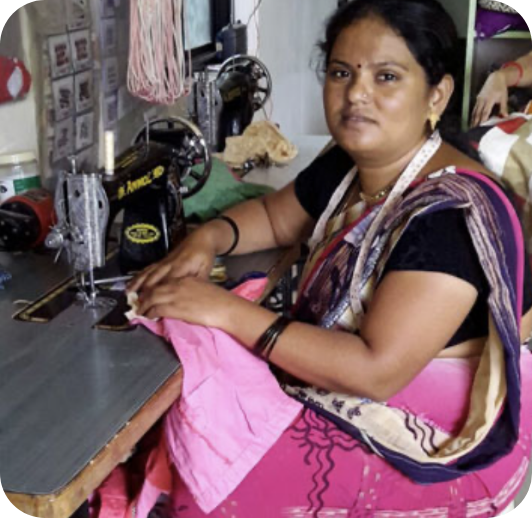

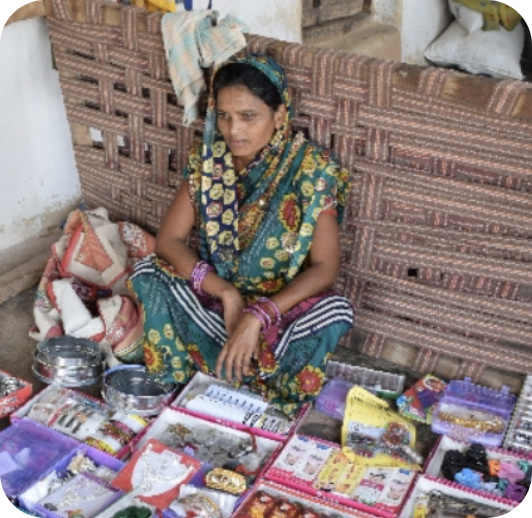
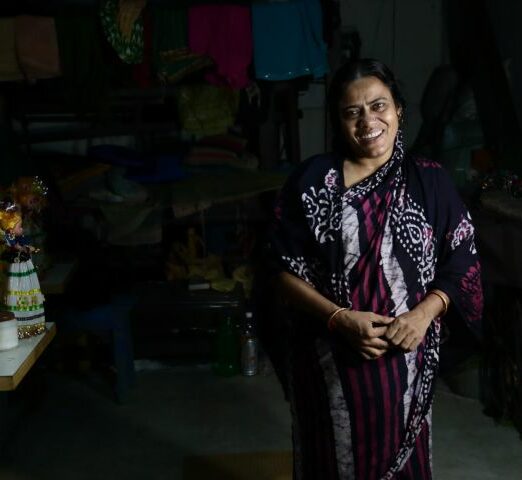
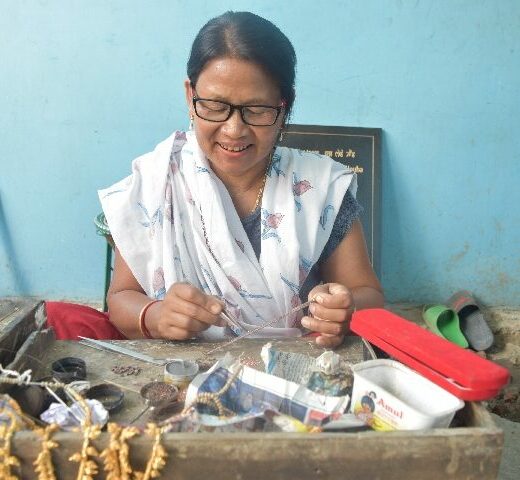
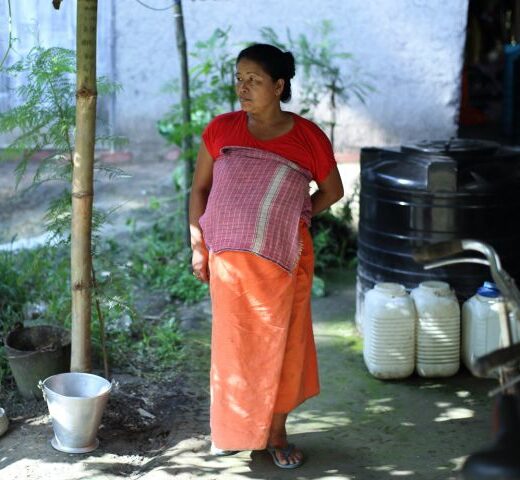
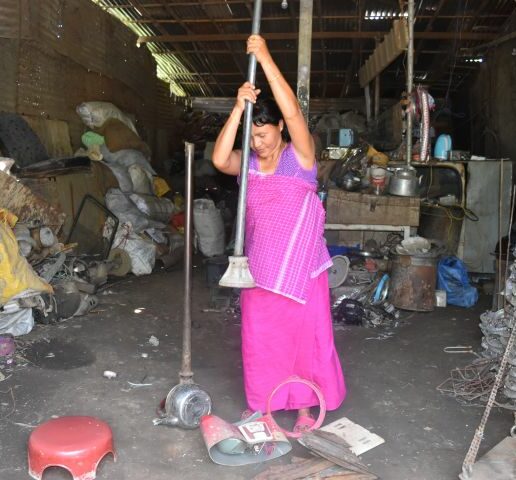
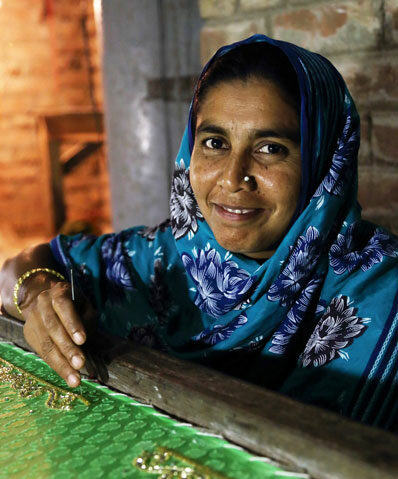
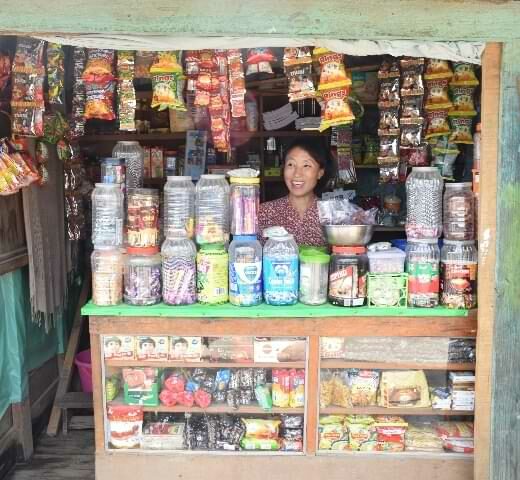
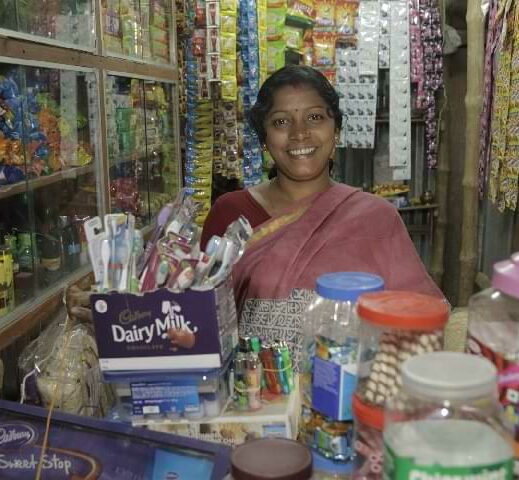
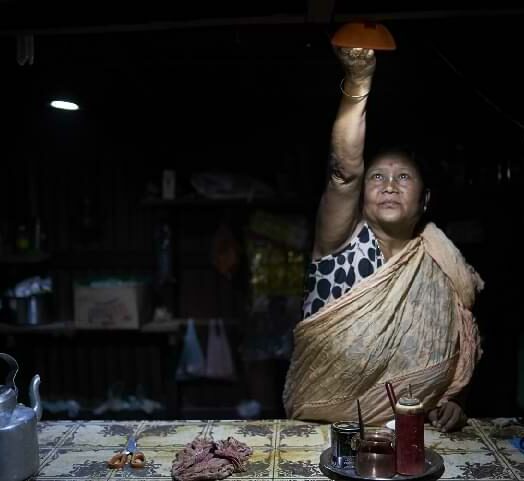
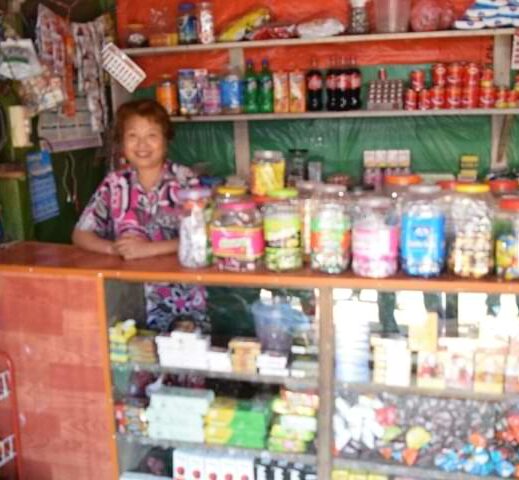
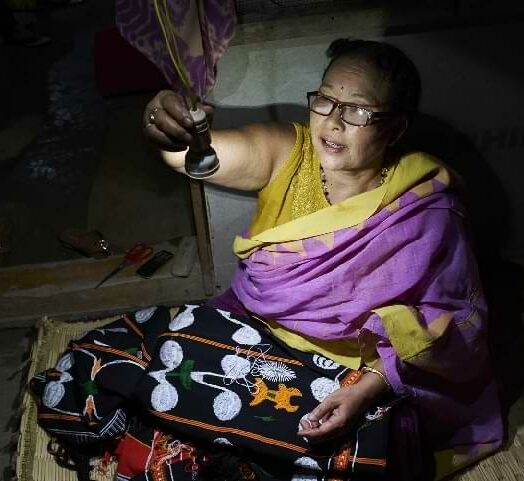














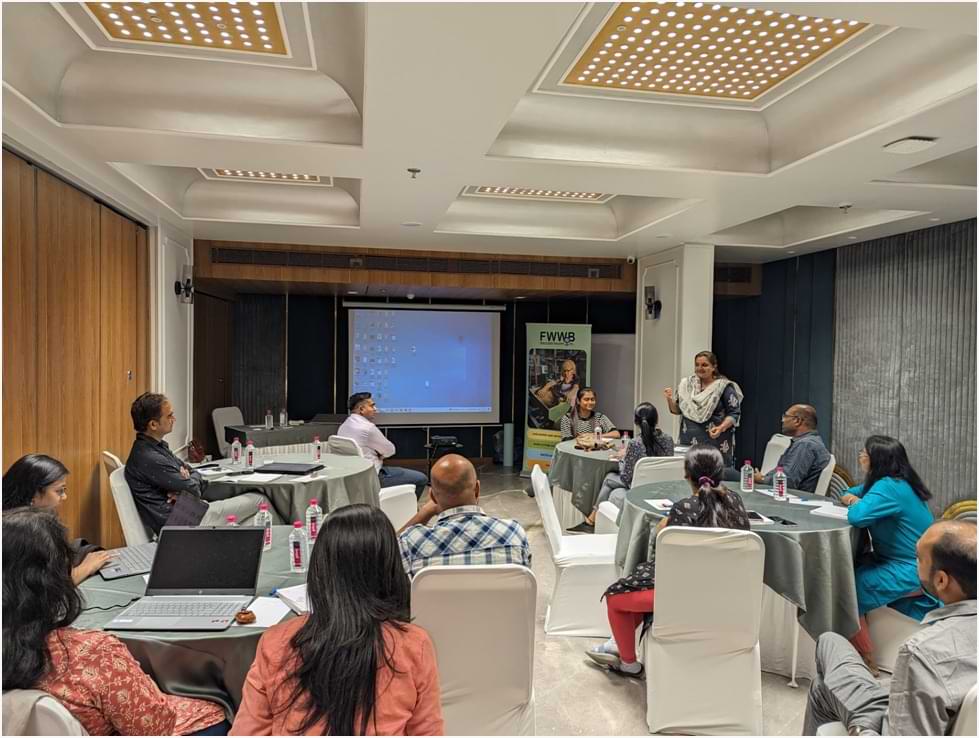
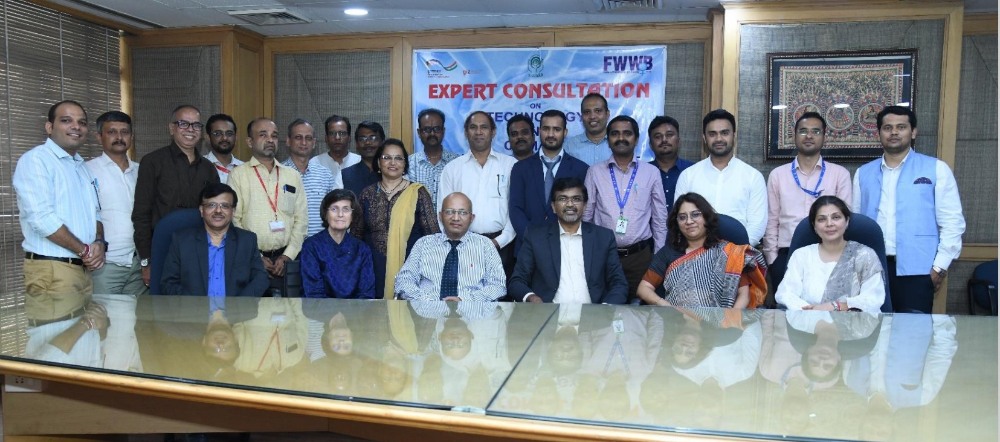




Meera Bai, a farmer with no formal education, lives in Keshavpura village of Pratapgrah district, Rajasthan. She is often concerned about her future because her income from farming and animal husbandry is not adequate for her household expenses and her children’s education. However, her participation in the SHGs formed by Srijan has given her the confidence to interact with other community members. She recalls that earlier, she didn’t even know how to hold a pen. After being part of the group, the other members taught her to write her name which made her feel empowered. She always dreamt of having her own small enterprise but due to her own fears and lack of entrepreneurial skills, she was reluctant to take up any business activity.
Meera undertook the training from FWWB in 2016 and learned about the success stories of different entrepreneurs during the business management skill training. She was able to relate herself to the stories of women entrepreneurs in other states, and the struggles and challenges they faced to become an entrepreneur.
Meera Bai says, “I am amazed by the examples shared by the FWWB trainers where the woman started her nursery along with farming and she too was illiterate like me.”
After receiving the training, she has decided to start her own flour mill. She plans to take a loan from her SHG and commence her work with mentor ship from Srijan’s team. Meera Bai realised that having multiple sources of income is requisite; hence, she has separated a small space from her land for gardening of fruits and planted 40 guava seeds and further plans to grow mango, pomegranate, and papaya. She is a little scepticald about this as it is her first attempt. She feels that this activity will lead to an increase in her earnings and further help her to increase her savings. She will no longer have to go for daily wage work in different cities and be dependent on the labor work income, which by its nature was irregular and inadequate for her family.